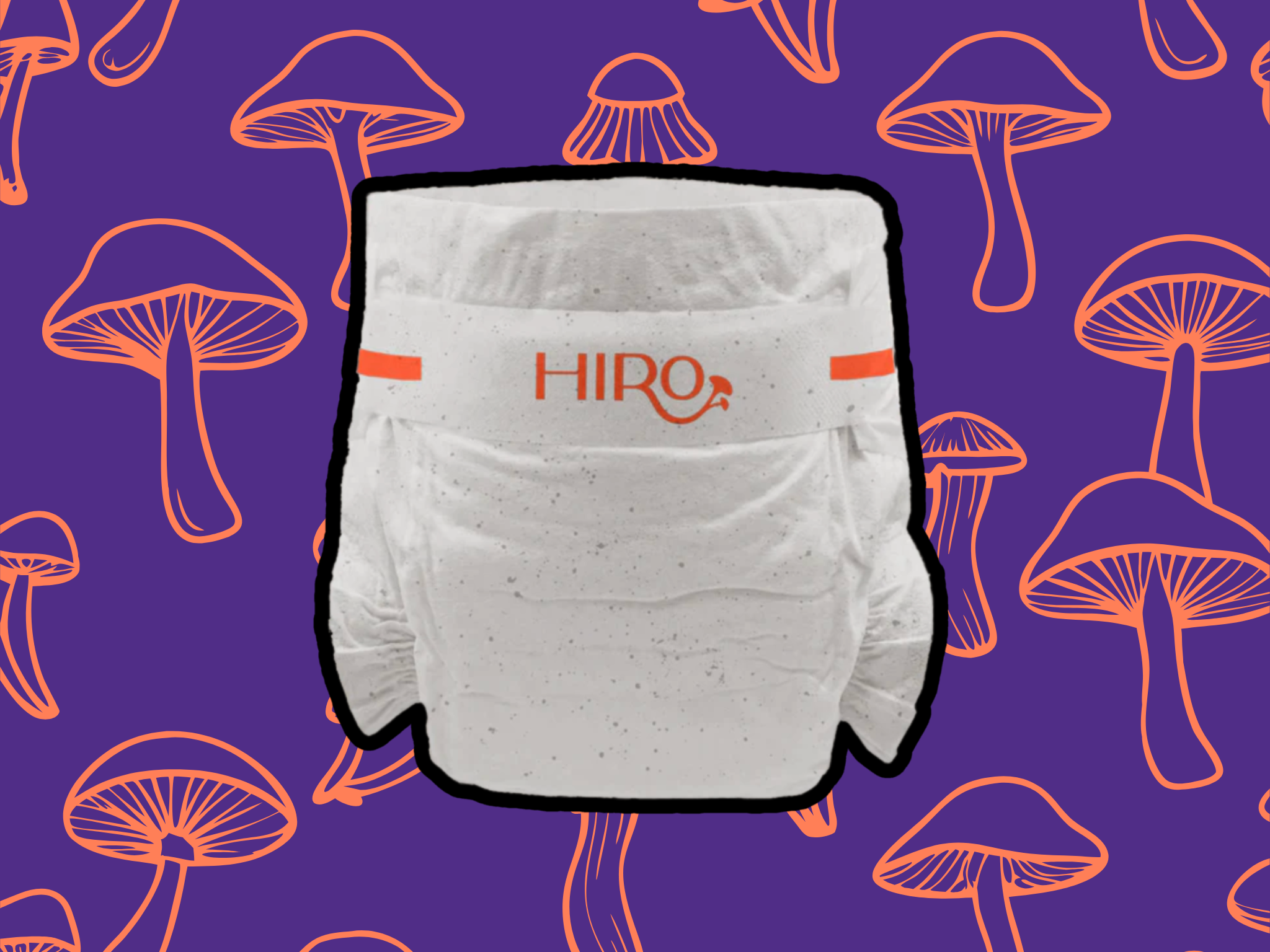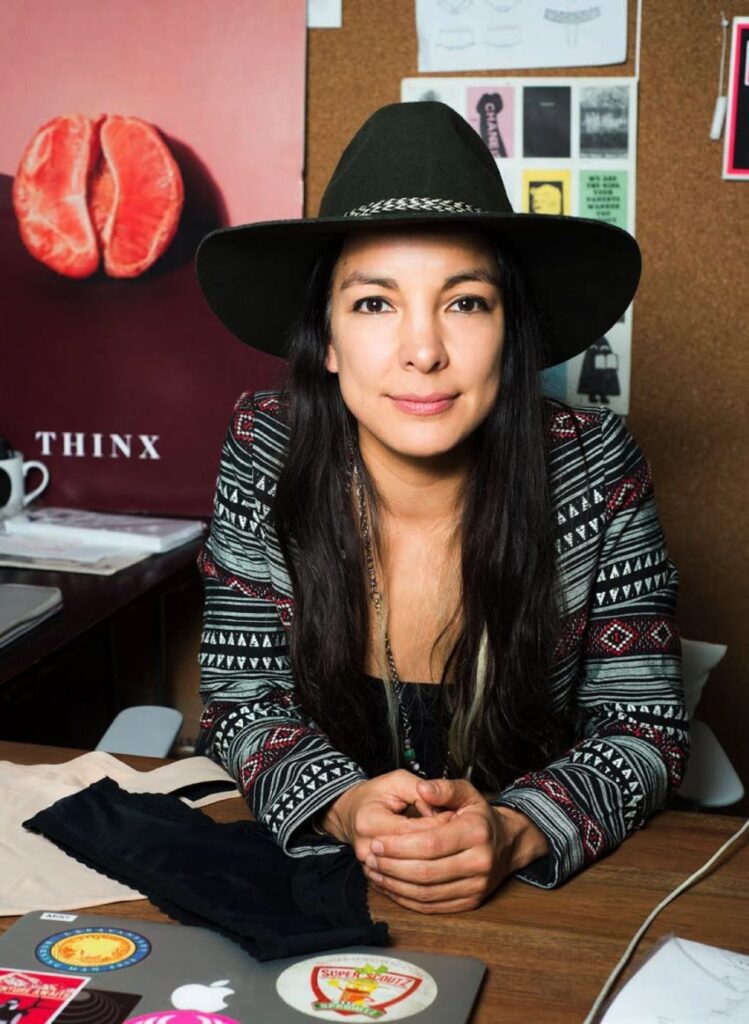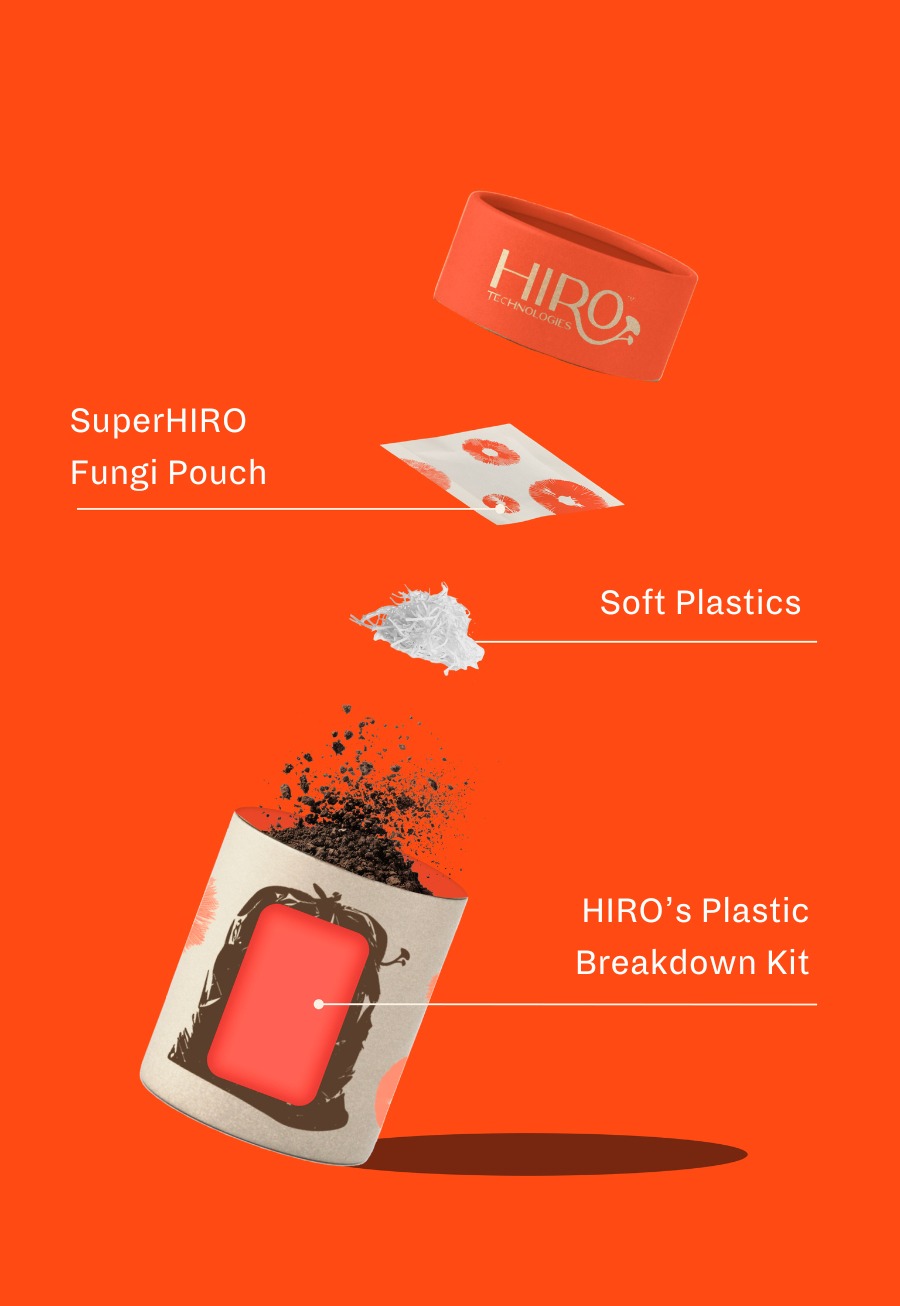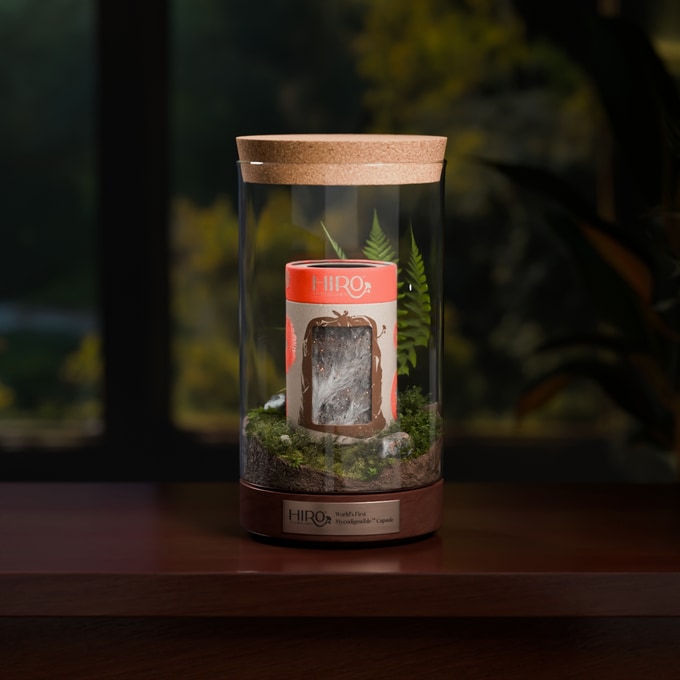
US startup Hiro Technologies has unveiled MycoDigestible Diapers, which come with plastic-eating fungi that break the material down in landfill.
What can mycelium not do? It can feed humans, stand in for leather, turn into sustainable earplugs, and apparently break down your baby’s diaper too.
Hiro Technologies, an emerging startup based in Austin, Texas, has come up with an innovative way to reduce plastic waste from diapers, all via fungus.
“Diapers are the number one source of household plastic waste and the third largest contributor to landfills overall,” says co-founder Miki Agrawal, the founder of viral period underwear company Thinx. “Each baby goes through [around] 5,000 diapers. The very first disposable diaper ever made? It’s still in a landfill today. We knew there had to be a better way.”
Her startup’s solution is MycoDigestible Diapers, which come with a blend of plastic-eating fungi that, when discarded, activate and help break down soft plastics way faster in landfills.
Dubbed SuperHiro Fungi, the decomposition technology aims to address the waste created by the 18 billion diapers that enter US landfills every year, each destined to sit for 500 years and leaking microplastics into our soil and water. The MycoDigestible Diapers can begin breaking down in less than a week.
An idea sparked from a children’s book

Agrawal rose to fame as the CEO of Thinx, the period underwear brand she co-founded with her sister Radha (herself the founder of sober early-morning dance party movement, Daybreaker).
Thinx went viral for its innovative marketing campaigns (think suggestive grapefruits and dripping egg yolks that were temporarily banned from the New York subway ad system). “We kind of became the poster child for the period feminist movement, which I was totally fine with,” she told Elle in December. “We received tons of press, and the business was able to scale.”
Then, in 2017, over halfway through her pregnancy, a former Thinx employee filed a sexual harassment complaint against Agrawal, who denied the allegations but agreed to settle the dispute, eventually stepping down from Thinx.
A couple of years later, thanks to her toddler son Hiro, she had an epiphany about the diaper industry. “If breast milk is liquid gold, baby poop must be fertiliser gold,” she recalled thinking. “Why are we wrapping this potent fertiliser in plastic and not harnessing it for good?”
Right then, Hiro came into the room and asked her to read him a book. She picked up a climate-centric children’s book and began reading, turning the pages long after her son had become distracted and run out from the room. A few pages in, the book featured certain kinds of fungi that eat plastic.
This was Agrawal’s eureka moment. She soon teamed up with Tero Isokauppila, the founder of mushroom coffee company Four Sigmatic, and established Hiro Technologies.
Given the success she’s had with Thinx (worth $230M at its peak) and her savvy eco bidet company Tushy, no one should bet against Agrawal and her diaper revolution.
How fungi can help break down plastic waste

The startup, which has raised $54,000 in an oversubscribed crowdfunding campaign on Kickstarter, notes that plastic-eating fungi were first discovered by scientists in 2011. Until now, they have been constrained to labs.
Its commercial and shelf-stable tech targets plastic at a molecular level, breaking it down into soil and mycelium without any specialised industrial composting facilities or energy-intensive processes.
Here’s how it works: once parents throw the packet away with the used diaper and it reaches a landfill, the fungi activate in the presence of moisture and start breaking down the diaper’s materials from the inside out.
Traditional landfill conditions are typically too dry, oxygen-poor, or contaminated for materials to decompose naturally, but the fungi secrete enzymes that target and sever the carbon bonds in plastic, transforming it into mycelium and nutrient-rich soil.
The initial iteration is optimised for polyethylene terephthalate (PET), polypropylene (PP), and polyethylene (PE), which together account for two-thirds of all plastic produced. Hiro Technologies explains that the carbon backbone of many plastics is fairly similar to that of lignin (a naturally occurring polymer that is the chief constituent of wood).
Fungi have evolved over millions of years to be able to break lignin down, and their enzymes have the ability to break down plastic too. “It’s literally in mushrooms’ DNA to break down complex carbon materials,” explains co-founder Tero Isokauppila. “We’ve simply re-trained them to do what they already kind of knew how to do.”
Hiro Technologies working on larger-scale projects

Plastic is responsible for 3.4% of global greenhouse gas emissions – a share set to grow as production triples by 2060. And despite 430 million tonnes of plastic waste being generated every year, only 9% is recycled.
The problem with that, meanwhile, is that there’s no end-of-life solution for common plastics, and many ‘eco’ plastic alternatives end up being a blend of different materials (including virgin and/or recycled plastic too), which beats the point.
“In the absence of effective recycling, we’ve built a circular, scalable alternative,” Isokauppila says. “We believe the end of plastic begins with mushrooms.”
The fungi-powered solution, which won the 2024 Hygienix Innovation Award, can transform the carbon in plastic into carbon that supports soil and plant growth, as well as other life.
Hiro Technologies is now working with waste facilities and landfill operators to embed its fungi technologies more broadly across their systems, with a long-term goal of creating an entire ecosystem to help break down other plastic waste at scale.
The startup also wants to partner with manufacturers, brands, and waste management companies to become a global supplier of plastic-eating fungi.
“We’re not waiting for policy to catch up. We’re not waiting for corporations to change on their own,” said Agrawal. “We’re doing it now. With our hands in the dirt, and fungi as our partner.”
The post This US Startup Debuted Sustainable Diapers That Decompose, Thanks to Fungi appeared first on Green Queen.
This post was originally published on Green Queen.